Best of the Premier League weekend: FFT's top performance, goal and moan
FourFourTwo.com's take on the best team performance, player and goal – plus the biggest gripe – as the Premier League returns from international duty
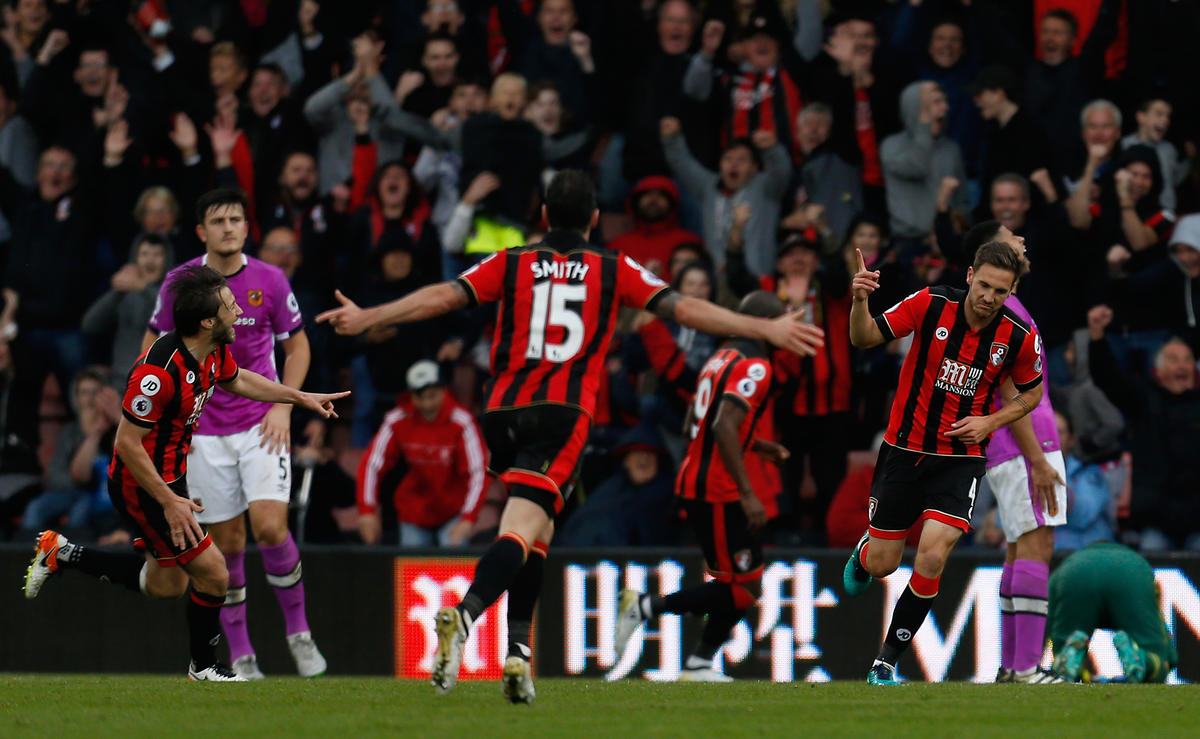
Performance – Bournemouth (vs Hull)
There were two contrasting perspectives on Saturday's game at the Vitality Stadium: that Bournemouth were excellent in a 6-1 triumph; or Hull started poorly and got worse as the game went on. Both are entirely valid, but the second point doesn't detract from the first. Eddie Howe's team wasn't perfect and, realistically, no properly functioning Premier League side should ever concede six times.
Bournemouth are a collection of players deemed not good enough by other clubs. Collectively, they have never looked like they belonged more
However, the win on Saturday was still a glowing vindication of Howe's coaching beliefs. Instead of picking apart the individual goals and worrying over which Hull defender was supposed to be where at particular moments, it's more gratifying to appreciate Bournemouth for what they were on Saturday and, in a more general sense, what they always intend to be.
It's a cliché, but they really do play the game in the right way: they move upfield smartly, they create chances in a logical and efficient way, and the manner in which they work and grind for each other is particularly infectious. They aren't built from shiny parts and Dean Court isn't home to much swaggering flair or individual class, but it does host a team and a manager in perfect harmony.
Bournemouth are not a newly promoted side anymore, but they still perform with a conviction which belies their second-year – and hence perilous – status. The Hull game was easier than it might have been, but it was still powered by a cocktail of smart football, efficiency and little bursts of expression. Everyone in that team knew their place and their role: the full-backs supported and overlapped at the right times, the forwards moved off the front and into channels to facilitate the midfield, and the wide players performed with the sort of carefree intent which is becoming quite rare.
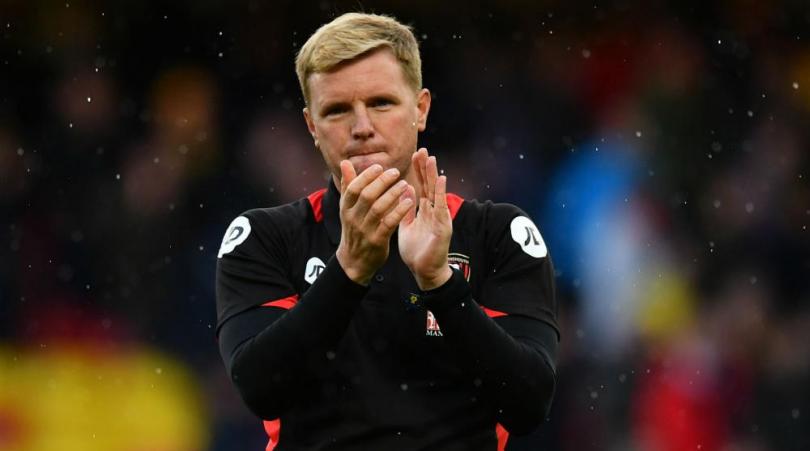
Watch, for instance, how uninhibited Jordon Ibe was for the 61 minutes he spent on the pitch. He's in a place where he both fits into an organised side and yet is still able to express himself at will and without compromising the structure. That's some equilibrium and one which some far more experienced managers have struggled to find.
And a final point, one which perhaps isn't made enough: with the exception of Jack Wilshere, every player picked by Howe on Saturday has played the best football of his career under him, either now or in the recent past. As a list of individual names, Bournemouth are a collection of players who have been deemed not good enough by other, bigger clubs, or who have been assumed to have no business in the Premier League. Collectively, though, they have never looked like they belonged more.
Get FourFourTwo Newsletter
The best features, fun and footballing quizzes, straight to your inbox every week.
Player of the Weekend – Maarten Stekelenburg (for Everton against Manchester City)
Not just for the penalty saves. It seems unfair, but saving penalties is just not a barometer of good goalkeeping.
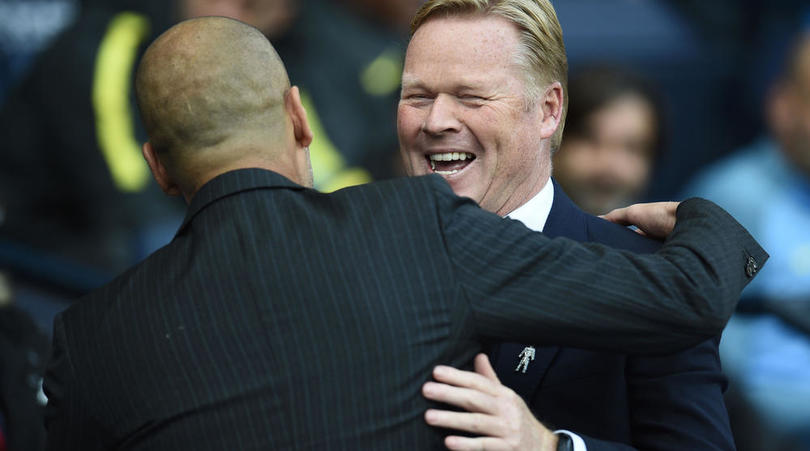
If he hadn't denied Kevin De Bruyne and Sergio Aguero from the spot, Everton's Stekelenburg would still have been the weekend's outstanding player. On the opening day of the season, he was similarly impressive against Tottenham and late, close-range stops from Vincent Janssen and Erik Lamela prevented the Ronald Koeman era from experiencing its first loss. This weekend, Stekelenburg was the defining factor again.
There's an odd trend at the moment: it's become fashionable to dismiss good shot-stopping. While it may be part of a goalkeeper's job description, there's a difference between a standard, reflex-based save and a stop which requires exceptional agility. Early in the second half at the Etihad, Stekelenburg provided an example of the former, jutting out a leg to block Kelechi Iheanacho's cute backheel. It was Goalkeeping 101: a save which should have been made and which any top-flight keeper would be expected to produce.
There was nothing routine about the two stops he made from Aguero and De Bruyne, though. Both shots stretched him to his elastic limit – one to his left, the other to his right – and he wouldn't have been to blame had either gone in. The first was excellent, but the second breathtaking. Given the power of his shot and the shape it took as it arrowed towards the top corner, De Bruyne was entitled to wheel away in celebration.
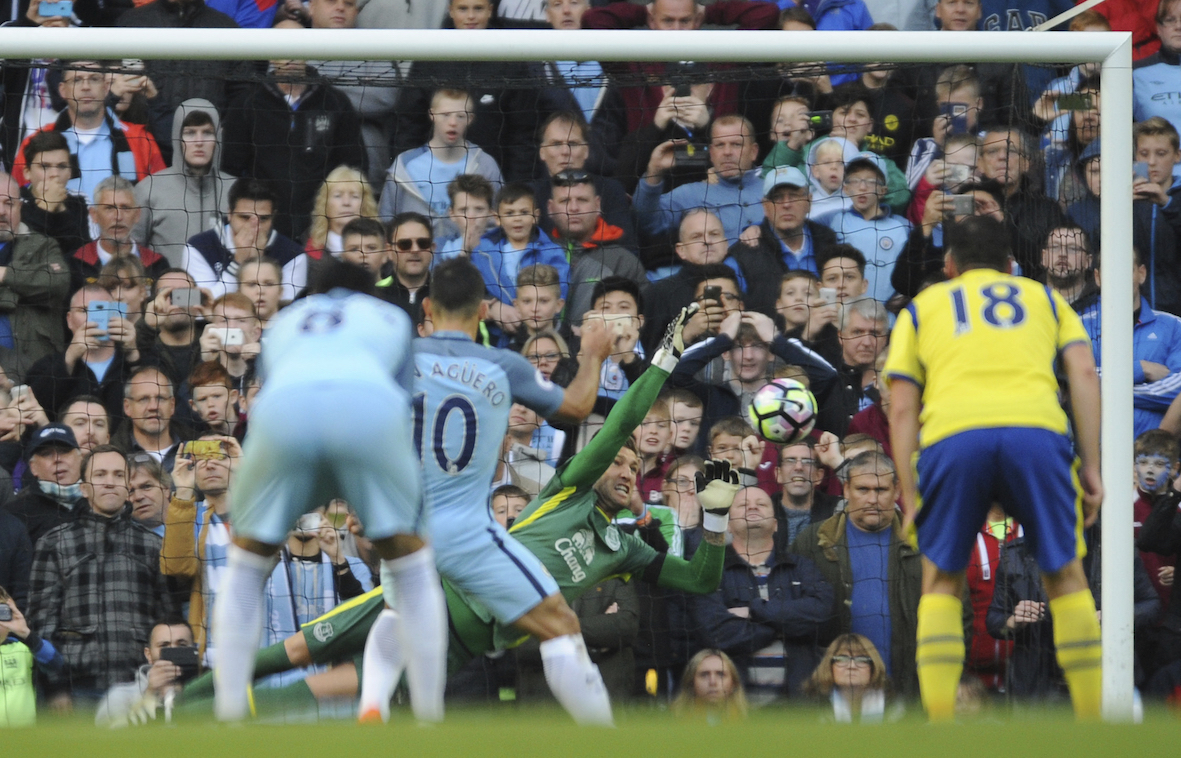
In fact, even right up to the point at which Stekelenburg got his decisive touch, a goal still looked inevitable. It required a seemingly impossible reach, steely fingertips and also an impressive mid-air adjustment. Stekelenburg is 34 years old and making that save, quite literally, nearly broke him. Yes, he was "just doing his job", but shot-stopping still decides games and on Saturday he was the difference between Everton taking a point back to Merseyside and conceding four times. The penalty saves were the gloss, but the body of Stekelenburg’s performance was terrific too.
Goal of the Weekend – Romelu Lukaku (for Everton against Manchester City)
Lukaku is a player around whom a ceaseless debate swirls. His goal return is mightily impressive and the statistic comparing him to other notable forwards (Ronaldo, Ibrahimovic, Rooney) of the current era isn't a false economy. On the other hand, he remains a slightly patchy player prone to the occasional bad miss who can also be ineffective as a targetman.
His powerful run and nerveless finish at the Etihad was a great goal in its own right, but it was especially noteworthy for blending what had previously been contrasting aspects of his game. He surged into the space behind Manchester City's defence, squared up Gael Clichy nicely and then whipped his shot beyond Claudio Bravo. Lovely, but nothing new: from his first days in England he has been accomplished in that same situation.
Watch the match highlights below, including Lukaku's goal and the Stekelenburg saves
But, in this instance, he applied that forceful exclamation point to a move which he himself had started. Shortly before taking the lead, Everton had been defending deep in their own half and Bryan Oviedo was forced to wriggle away from his own goal-line just to complete a clearance. When he created that space for himself, Lukaku was his out-ball: deep in his own half, the forward offered an option to his full-back, laid the ball off to Idrissa Gueye, and then drifted up the pitch.
It was relatively formulaic play but, had it not been for the Belgian, Oviedo would likely have been forced to punt possession deep into the City half. As it was, Lukaku helped begin a swift counter-attack which he, courtesy of a smart Yannick Bolasie lay-off, would also finish. The run and strike relied on abilities he's known to possess, but everything before those final few seconds illustrated the strengthening of a long-standing weakness. It was a very complete goal from a player who is often accused of being incomplete.
Moan of the Weekend – Granit Xhaka's red card
It creates a confusion which will only deepen when, inevitably, someone isn't dismissed for a similar offence next weekend
"Rogue" officiating is becoming a valid issue.
This year’s European Championship was the tournament of the tactical foul. At times it was aggravating to watch but, until a refereeing directive creates a deterrent against it, it will remain a valid – albeit emergency – defensive option. Essentially, it's a tax on poor positioning: if a defender is caught behind a fast break, he can pay a yellow card to get out of trouble.
No, it shouldn't work like that, but it has done for many years. No matter how flagrantly cynical the tackle, the outcome is always the same. The crowd can groan and the opposing players can howl, but it's still just a caution – as it should have been for Granit Xhaka.
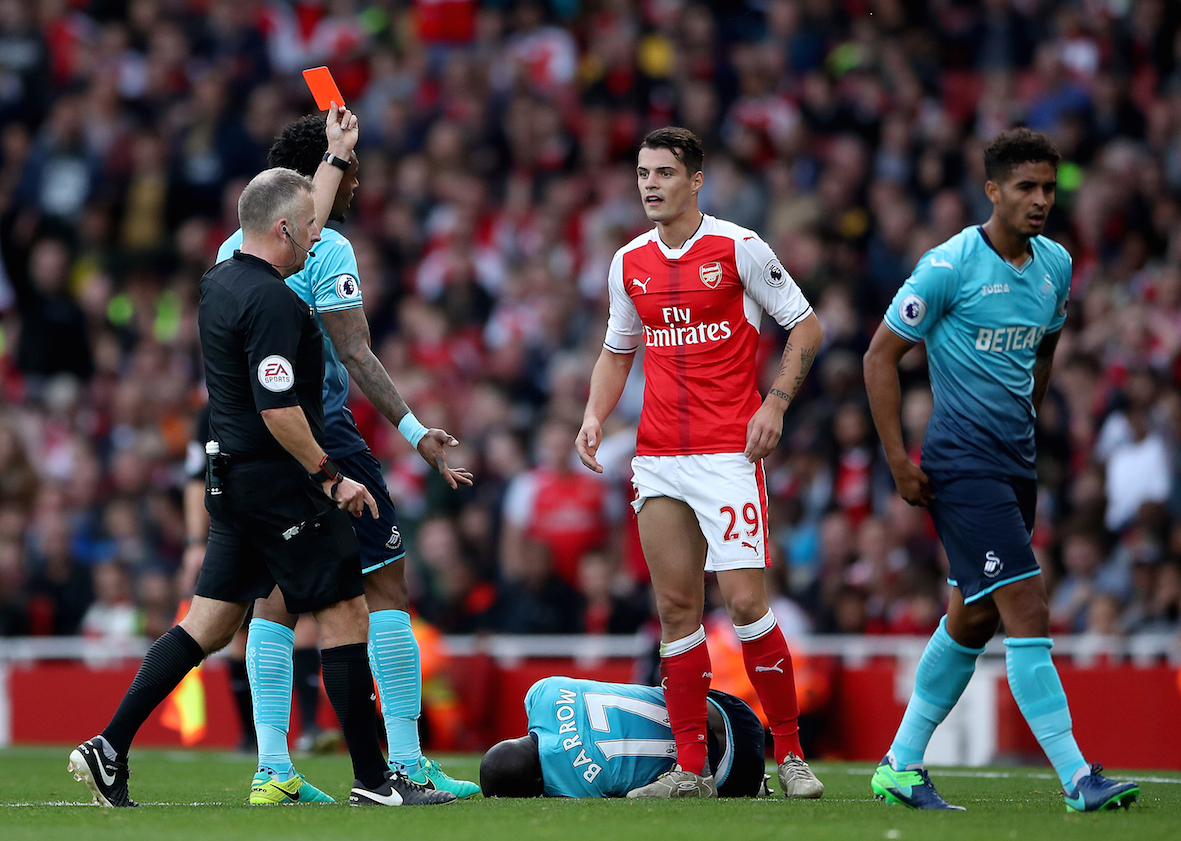
In defence of Jon Moss's decision, some have suggested Xhaka's tackle on Mo Barrow amounted to violent conduct and that the Swiss midfielder showed excessive force. There's some justification to that and, yes, refereeing relies on a split-second interpretation of laws which can be vague. But that kind of decision is typically automatic and generally leans as much on precedent as the rule book: when there's no goalscoring opportunity, there's no red card.
The application of the laws will always vary from official to official, but there was a hint of autonomy in this case. As other referees have done in the past with penalty-box grappling, Moss was adhering to a standard which should exist but doesn't. Does it really matter? No, probably not, but it creates a confusion which will only deepen when, inevitably, someone isn't dismissed for a similar offence next weekend.
Premier League reaction • New features you’d like every day on FourFourTwo.com
Seb Stafford-Bloor is a football writer at Tifo Football and member of the Football Writers' Association. He was formerly a regularly columnist for the FourFourTwo website, covering all aspects of the game, including tactical analysis, reaction pieces, longer-term trends and critiquing the increasingly shady business of football's financial side and authorities' decision-making.
